-
 Bitcoin
Bitcoin $117600
2.11% -
 Ethereum
Ethereum $3907
6.13% -
 XRP
XRP $3.288
9.68% -
 Tether USDt
Tether USDt $1.000
-0.01% -
 BNB
BNB $784.8
2.00% -
 Solana
Solana $174.3
3.60% -
 USDC
USDC $0.9997
-0.03% -
 Dogecoin
Dogecoin $0.2220
8.04% -
 TRON
TRON $0.3379
0.01% -
 Cardano
Cardano $0.7829
5.46% -
 Stellar
Stellar $0.4348
8.84% -
 Hyperliquid
Hyperliquid $40.50
6.38% -
 Sui
Sui $3.757
7.22% -
 Chainlink
Chainlink $18.41
10.06% -
 Bitcoin Cash
Bitcoin Cash $581.6
1.91% -
 Hedera
Hedera $0.2586
5.37% -
 Avalanche
Avalanche $23.30
4.67% -
 Ethena USDe
Ethena USDe $1.001
0.01% -
 Litecoin
Litecoin $122.0
2.62% -
 UNUS SED LEO
UNUS SED LEO $8.972
-0.23% -
 Toncoin
Toncoin $3.338
1.14% -
 Shiba Inu
Shiba Inu $0.00001282
3.76% -
 Uniswap
Uniswap $10.38
6.88% -
 Polkadot
Polkadot $3.852
4.63% -
 Dai
Dai $1.000
0.02% -
 Bitget Token
Bitget Token $4.463
2.29% -
 Monero
Monero $263.6
-7.22% -
 Cronos
Cronos $0.1496
4.78% -
 Pepe
Pepe $0.00001106
4.91% -
 Aave
Aave $284.3
8.09%
What currencies does Coinbase support? List of cryptocurrencies that can be traded on Coinbase
Coinbase supports over 100 cryptocurrencies, including major ones like Bitcoin and Ethereum, altcoins like Cardano, and stablecoins like USDC, enhancing trading diversity.
May 29, 2025 at 07:49 pm

Coinbase is one of the leading cryptocurrency exchanges globally, known for its user-friendly interface and robust security measures. One of the most common questions potential users have is about the variety of cryptocurrencies supported by the platform. In this article, we will provide a detailed list of the currencies that Coinbase supports, along with some insights into how you can trade these cryptocurrencies on the platform.
Overview of Coinbase's Supported Currencies
Coinbase offers a wide range of cryptocurrencies for trading, catering to both beginners and experienced traders. As of the latest update, Coinbase supports over 100 different cryptocurrencies. This extensive list ensures that users have access to a diverse portfolio of digital assets.
Major Cryptocurrencies on Coinbase
Coinbase includes several major cryptocurrencies that are popular in the market. Some of the most notable ones include:
- Bitcoin (BTC): The first and most widely recognized cryptocurrency.
- Ethereum (ETH): Known for its smart contract functionality and the backbone of many decentralized applications.
- Litecoin (LTC): Often considered the silver to Bitcoin's gold, offering faster transaction times.
- Bitcoin Cash (BCH): A fork of Bitcoin designed to increase block size and improve scalability.
These major cryptocurrencies form the backbone of Coinbase's trading platform and are available for both buying and selling.
Altcoins and Emerging Cryptocurrencies
In addition to major cryptocurrencies, Coinbase also supports a variety of altcoins and emerging digital assets. Some of these include:
- Cardano (ADA): Known for its research-driven approach to blockchain technology.
- Stellar (XLM): Focused on facilitating cross-border payments.
- Chainlink (LINK): A decentralized oracle network that connects smart contracts with real-world data.
- Polkadot (DOT): Aimed at enabling interoperability between different blockchains.
These altcoins provide users with the opportunity to diversify their portfolios and invest in promising new technologies within the crypto space.
Stablecoins Supported by Coinbase
Stablecoins are another important category of cryptocurrencies supported by Coinbase. These are digital currencies pegged to a stable asset, such as the US Dollar, to minimize volatility. The stablecoins available on Coinbase include:
- USD Coin (USDC): A fully collateralized US dollar stablecoin.
- DAI: A decentralized stablecoin that maintains its peg through a system of smart contracts.
- Tether (USDT): One of the most widely used stablecoins, also pegged to the US Dollar.
Stablecoins are particularly useful for traders looking to hedge against market volatility or for those who want to move funds quickly without the risk of price fluctuations.
How to Trade Cryptocurrencies on Coinbase
Trading on Coinbase is straightforward, but it's essential to understand the process to make the most of your experience. Here’s a step-by-step guide on how to trade cryptocurrencies on Coinbase:
- Sign up for a Coinbase account: Visit the Coinbase website, click on "Sign Up," and follow the prompts to create an account. You'll need to provide your email address, set a password, and complete the identity verification process.
- Fund your account: Once your account is set up, you can fund it using various methods such as bank transfers, credit/debit cards, or other cryptocurrencies. Navigate to the "Deposit" section and choose your preferred method.
- Navigate to the trading page: After funding your account, go to the "Trade" section. Here, you'll see a list of all the cryptocurrencies available for trading.
- Select the cryptocurrency you want to trade: Click on the cryptocurrency you're interested in. You'll be taken to a page where you can see the current market price and other trading details.
- Place your order: You can choose between a "Market Order," which buys or sells at the current market price, or a "Limit Order," which allows you to set a specific price at which you want to buy or sell. Enter the amount you want to trade and confirm the order.
- Monitor your trades: After placing your order, you can monitor its status in the "Portfolio" section. You'll see real-time updates on your holdings and any ongoing trades.
Additional Features and Services
Coinbase offers more than just trading; it provides a range of additional features and services that enhance the user experience. Some of these include:
- Coinbase Pro: A more advanced trading platform for experienced traders, offering lower fees and more detailed charting tools.
- Coinbase Earn: A program that allows users to earn cryptocurrencies by learning about different digital assets through interactive lessons.
- Coinbase Wallet: A secure, self-custody wallet for storing and managing your cryptocurrencies.
These additional services make Coinbase a comprehensive solution for all your cryptocurrency needs, from trading to learning and storing your assets.
Frequently Asked Questions
Q1: Can I trade all supported cryptocurrencies on Coinbase Pro?
A1: Not all cryptocurrencies supported on Coinbase are available on Coinbase Pro. Coinbase Pro typically focuses on more established and liquid assets. You can check the Coinbase Pro website for a list of supported cryptocurrencies.
Q2: Are there any fees associated with trading on Coinbase?
A2: Yes, Coinbase charges fees for trading, which vary depending on the payment method and the size of the transaction. There are also fees for using Coinbase Pro, which are generally lower and based on a maker-taker model.
Q3: How can I withdraw my funds from Coinbase?
A3: To withdraw funds from Coinbase, go to the "Withdraw" section of your account. You can choose to withdraw to a bank account, another cryptocurrency wallet, or via other methods like PayPal. Follow the prompts to complete the withdrawal process, keeping in mind that there may be fees and processing times associated with withdrawals.
Q4: Is it possible to trade cryptocurrencies directly with other users on Coinbase?
A4: Coinbase does not currently offer a peer-to-peer trading feature. All trades on Coinbase are executed against the order book maintained by the platform. If you're interested in peer-to-peer trading, you might want to explore other platforms that specialize in this type of trading.
Disclaimer:info@kdj.com
The information provided is not trading advice. kdj.com does not assume any responsibility for any investments made based on the information provided in this article. Cryptocurrencies are highly volatile and it is highly recommended that you invest with caution after thorough research!
If you believe that the content used on this website infringes your copyright, please contact us immediately (info@kdj.com) and we will delete it promptly.
- Cold Wallet Crypto in 2025: The Future is Now, Ya'll
- 2025-08-08 05:10:13
- MAGACOIN, SOL, and ADA: A Tale of Shifting Tides in Crypto
- 2025-08-08 05:10:13
- SHIB Price, PEPE, and the Memecoin Supercycle: Who Will Reign Supreme?
- 2025-08-08 05:50:12
- Pudgy Penguins Price Prediction: Google Trends & Breakout Signals
- 2025-08-08 05:50:12
- UAE Crypto Regulation: SCA and VARA Unite to Streamline the Future of Digital Assets
- 2025-08-08 05:55:48
- MAGACOIN Finance: The Presale Phenomenon Rocking the Crypto World
- 2025-08-08 05:55:48
Related knowledge
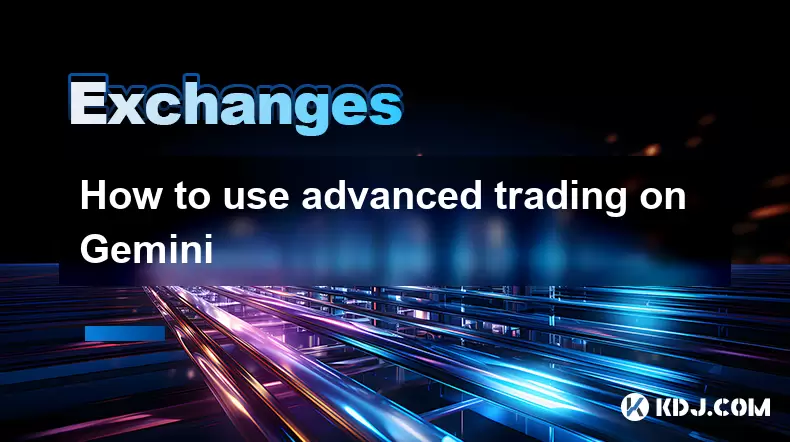
How to use advanced trading on Gemini
Aug 08,2025 at 04:07am
Understanding Advanced Trading on GeminiAdvanced trading on Gemini refers to a suite of tools and order types designed for experienced traders who wan...
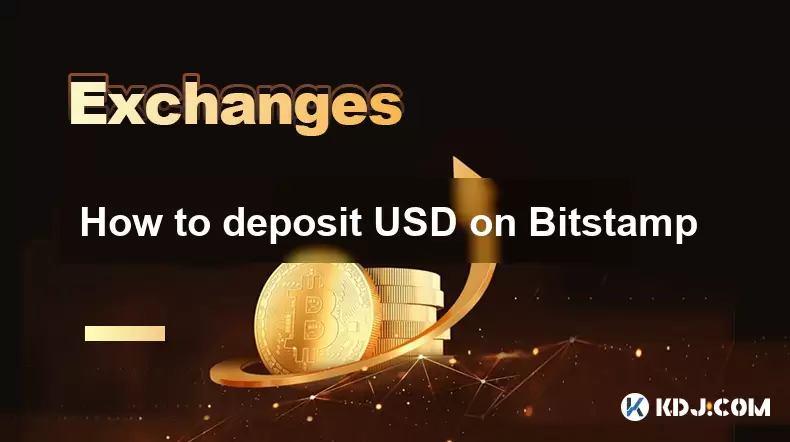
How to deposit USD on Bitstamp
Aug 07,2025 at 05:18pm
Understanding Bitstamp and USD DepositsBitstamp is one of the longest-standing cryptocurrency exchanges in the industry, offering users the ability to...
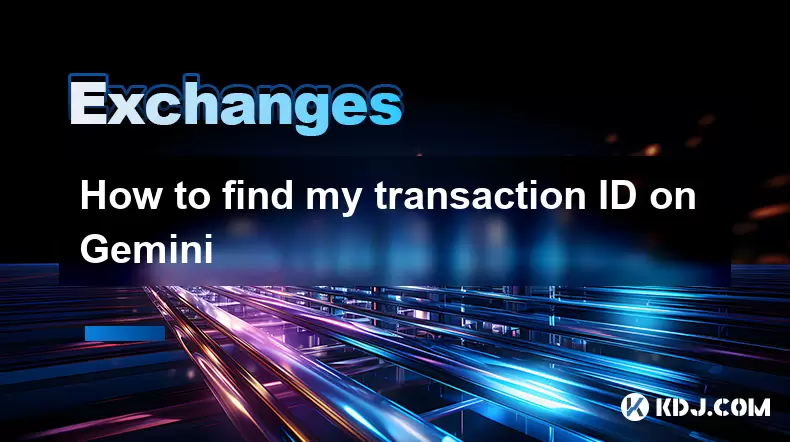
How to find my transaction ID on Gemini
Aug 08,2025 at 12:50am
Understanding the Transaction ID in Cryptocurrency ExchangesA transaction ID (TXID) is a unique alphanumeric string that identifies a specific transfe...
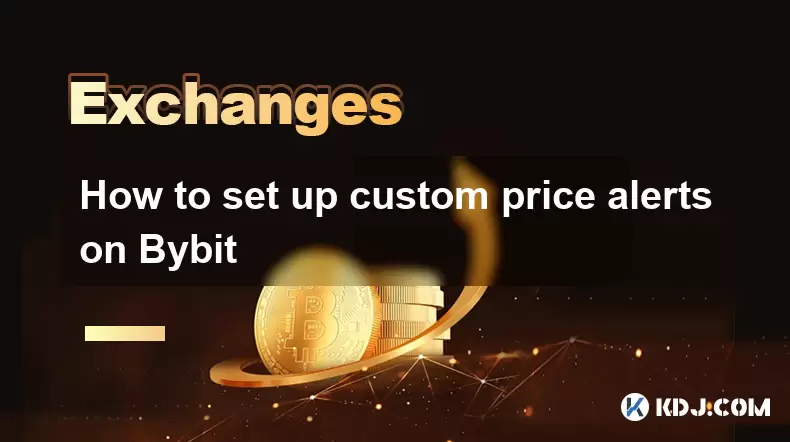
How to set up custom price alerts on Bybit
Aug 07,2025 at 04:31pm
Understanding Price Alerts on BybitPrice alerts on Bybit are essential tools for traders who want to stay informed about significant price movements i...
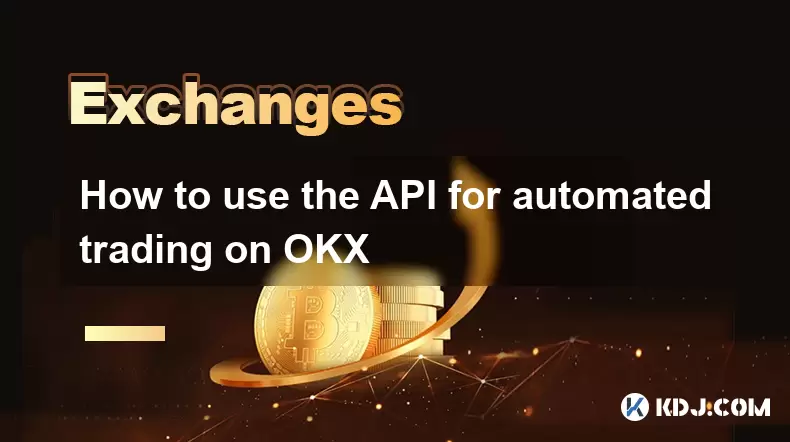
How to use the API for automated trading on OKX
Aug 07,2025 at 05:21pm
Understanding the OKX API for Automated TradingThe OKX API provides a powerful interface for users to automate their trading strategies, access real-t...

How to trade forex pairs on Kraken
Aug 07,2025 at 11:49pm
Understanding Forex Pairs on KrakenKraken is primarily known as a cryptocurrency exchange, but it also supports select forex pairs through its Kraken ...

How to use advanced trading on Gemini
Aug 08,2025 at 04:07am
Understanding Advanced Trading on GeminiAdvanced trading on Gemini refers to a suite of tools and order types designed for experienced traders who wan...

How to deposit USD on Bitstamp
Aug 07,2025 at 05:18pm
Understanding Bitstamp and USD DepositsBitstamp is one of the longest-standing cryptocurrency exchanges in the industry, offering users the ability to...

How to find my transaction ID on Gemini
Aug 08,2025 at 12:50am
Understanding the Transaction ID in Cryptocurrency ExchangesA transaction ID (TXID) is a unique alphanumeric string that identifies a specific transfe...

How to set up custom price alerts on Bybit
Aug 07,2025 at 04:31pm
Understanding Price Alerts on BybitPrice alerts on Bybit are essential tools for traders who want to stay informed about significant price movements i...

How to use the API for automated trading on OKX
Aug 07,2025 at 05:21pm
Understanding the OKX API for Automated TradingThe OKX API provides a powerful interface for users to automate their trading strategies, access real-t...

How to trade forex pairs on Kraken
Aug 07,2025 at 11:49pm
Understanding Forex Pairs on KrakenKraken is primarily known as a cryptocurrency exchange, but it also supports select forex pairs through its Kraken ...
See all articles

























































































